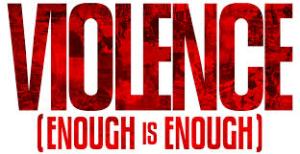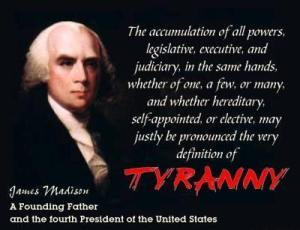No one likes the idea of violence and torture.
We all wish that we can live happily with everyone else, sharing with others, enjoying the diversity of opinions and difference in life styles.
Pacifist refuse to join the arm forces to participate in violence against mankind.
Gandhi and King promote non violent means of bringing about change and topple existing power structures in society. Moral outrage is the peaceful path to a more equitable community.
Can we imagine a day when everyone in this world possesses the moral compass in them to do the right thing without the threat of violence and punishment?
We have progressed a long way from the cave man days when it is everyone for themselves. Life may be solitary, brutish, and short and might is right.
Our present day society thrives on co-operation through separation of labor, trade, specialized expertise, and spreading of ideas.
Something as simple as artificial light or simple pencil and paper will be impossible to have if we go back to the cave man’s solitary existence.
However, our interdependent society is vulnerable to free riders taking short cuts to the fruits of labor by others, destroying the incentive to cooperate and properly share the resulting bounty.
Whether it is the shop lifter that takes the merchandise without paying, the burglar that steals what others have acquired, or pirates who plunder valuables from legal trade, all these destroy cooperation if allowed to go on.
For the free rider, violence is too easy a tool not to use to threaten their victims and make a quick getaway.
Participants in an orderly cooperative society are completely side swiped by the threat of violence. The existence of free riders quickly stalls the incentives to cooperate and to invest in the future.
There may be talk of letting the free rider come to their moral senses but ultimately, most people will conclude that their society need a force that can control this violence.
If we cannot morally persuade free riders to take on their responsibility, then for the good of society, we must have a force strong enough to stand up to these free riders and put them to justice by putting them in jail or worse.
Incarceration is a form of violence. It is forced on someone against their will by brute force both as a deterrent and to isolate them from society.
Civilized society is where we all give up violence and agree to be bound by the justice system with the government being the only agent legally able to threaten violence to those who do not obey the law legislated by the majority.
Will there ever be a day when the moral influence is so pervasive that we can eliminate free riders from our society?
That the abhorrence to violence is so deep that no free rider is able to get past the suffering of their victims?
Seems unlikely.
Then we have the international scene with varying value systems and cultures, a collection of nations with no binding constitution and each nation valuing their sovereignty over the welfare of other states.
Each state has their violence machine, their “defense force” to deter other states from free riding against the first state’s interests.
Free riding and the violence often used are so destructive to our cooperative society that we have to prevent it and the only effective way to do so is by violence.
So might is right but under the cover provided by the might we agree with each other to cooperate and flourish.
What about torture?
If our government is already empowered to forcefully commit violence by incarcerating offenders as a deterrent, should it not also be empowered to torture against known offenders to gain information?
Sam Harris posed the example of a carjacker being caught by the police. There is a baby in the car that was hijacked and we need to know where the car is but the carjacker is not cooperating. Should the police use torture to try to get the car location from the carjacker in order to save the baby in the car?
There are those who say that torture only produce useless information but can we convince the distraught mother that we should just wait for the carjacker to cooperate when ready?
If we agree that stronger persuasive powers are necessary in this case, then should we apply the same tougher persuasions to suspects who may be plotting acts of terrorism against our society?





















